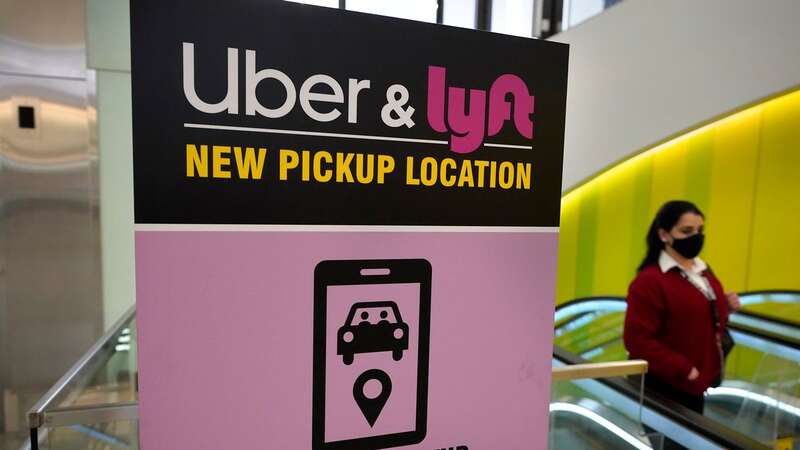
Uber and Lyft drivers in Massachusetts will now earn a minimum pay standard of $32.50 per hour, thanks to a settlement announced by the state's Attorney General Andrea Campbell.
The deal also includes a range of benefits and protections for drivers. In addition, the two ride-hailing giants are required to pay a combined total of $175million to the state to settle allegations that they violated wage and hour laws in Massachusetts. A significant majority of this sum will be distributed to current and former drivers.
Campbell stated that the settlement puts an end to her office's lengthy litigation against Uber and Lyft and halts their attempt to alter state employment law through a proposed 2024 ballot initiative. She argued that such a move would have resulted in drivers receiving insufficient protections and an earnings standard that wouldn't guarantee a minimum wage.
"For years, these companies have underpaid their drivers and denied them basic benefits," Campbell said in a written statement. "Today's agreement holds Uber and Lyft accountable, and provides their drivers, for the very first time in Massachusetts, guaranteed minimum pay, paid sick leave, occupational accident insurance, and health care stipends."
Democratic Governor Maura Healey hailed the settlement as delivering "historic wages and benefits to right the wrongs of the past and ensure drivers are paid fairly going forward."
 New laws coming in 2023 that will affect workers, landlords, voters and more
New laws coming in 2023 that will affect workers, landlords, voters and more
Lyft, in a statement, said the agreement resolves a lawsuit that recently went to trial, and avoids the need for the ballot initiative campaign this November. "More importantly, it is a major victory in a multiyear campaign by Bay State drivers to secure their right to remain independent, while gaining access to new benefits," the company stated.
Uber also issued a statement, calling the agreement "an example of what independent, flexible work with dignity should look like in the 21st century." "In taking this opportunity, we've resolved historical liabilities by constructing a new operating model that balances both flexibility and benefits," the company said. "This allows both Uber and Massachusetts to move forward in a way that reflects what drivers want and demonstrates to other states what's possible to achieve."
The companies were advocating for a ballot question that would classify drivers as independent contractors eligible for some benefits, but Campbell said the settlement stops the threat of the ballot question. A competing ballot question seeks to give drivers the right to unionise in Massachusetts.
Drivers will now earn one hour of sick day pay for every 30 hours worked, up to a maximum of 40 hours per year. As part of the agreement, Uber and Lyft must update their driver applications so drivers can view and claim their sick leave directly in the app. Drivers will also receive a stipend to buy into the state's paid family and medical leave programme.
Under the agreement, Uber and Lyft will allow drivers to combine their hours worked for both companies to qualify for a health insurance stipend. Drivers who clock more than 15 hours per week for either or both firms will be eligible for a health insurance stipend to cover a plan on the Massachusetts Health Connector.
Additionally, drivers will be entitled to occupational accident insurance, funded by the companies, offering up to $1million in coverage for work-related injuries. The deal also mandates that the companies provide drivers with crucial information - such as trip length, destination, and expected earnings - before they are required to accept a ride.
The companies are prohibited from discriminating against drivers based on race, religion, national origin, sex, sexual orientation, gender identity, disability or other protected identities. They are also forbidden from retaliating against drivers who have lodged a complaint about the companies with the Attorney General's Office.
Furthermore, the agreement requires the companies to offer drivers in-app chat support with a live person in English, Spanish, Portuguese and French. They must also inform drivers why they have been deactivated and establish an appeals process.
Read more similar news:
Comments:
comments powered by Disqus

































